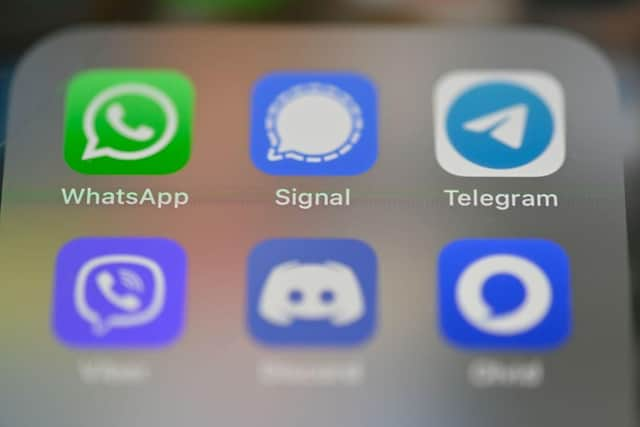Ukraine-Russia conflict: Ukrainian authorities should stop posting ‘humiliating’ videos of Russian soldiers online, human rights organisation warns
Human Rights Watch (HRW) said such treatment of prisoners of war (POWs) violates protections under the Geneva Conventions intended to ensure dignified treatment of captured combatants on all sides.
The Security Service of Ukraine (SBU) – the main security arm of the Ukrainian government – has a Telegram account with about 868,000 subscribers where it has posted videos of captured Russian soldiers who appear under duress or are revealing their names, identification numbers, and other personal information, including their parents’ names and home addresses.
Advertisement
Hide AdAdvertisement
Hide AdIt shares these videos on its Facebook, Twitter, YouTube, and Instagram pages, with roughly 978,000 combined followers and subscribers. A Telegram channel apparently run by the Internal Affairs Ministry, with more than 847,000 subscribers does the same and has an affiliated website and YouTube channel.


HSW said it has written to the SBU and its Interior Ministry to express concern about the state-run social media channels and website that were posting the images and videos. The human rights organisation has asked what steps the authorities would take to ensure POWs are treated in compliance with the Geneva Conventions.
“The obligation to protect POWs from being objects of public curiosity, as well as protecting them from intimidation or humiliation, is part of the broader requirement to ensure their humane treatment and protect their families from harm,” said Aisling Reidy, HRW senior legal advisor. “The Ukrainian authorities should stop posting these videos online.”
Social media platforms should also clarify whether and how videos of POWs that are incompatible with the Geneva Conventions fall under their existing policies and, if necessary, develop new policies to identify and suppress the spread of such content, HRW said.
One video with 2.2 million views on the SBU’s Telegram channel shows a captured Russian soldier on the phone with his mother, and then another POW who under interrogation gives his name, birth date and details on his military unit. A video on the security service Facebook page with over 5.4 million views shows a POW with a battered face and bandaged leg saying he went through Belarus to Chernobyl, 56 miles north of Kyiv.
HRW said the Telegram channel, YouTube channel and website apparently run by the Interior Ministry, all created on February 26, include a database with the names of Russian soldiers who were captured or killed in the war.
The organisation said an adviser to the Interior Ministry, Victor Andrusiv, had told it the purpose of the videos was to help the relatives identify captured and killed Russian soldiers.
In a video posted to the ministry-run YouTube channel, Mr Andrusiv said: “We are committed to fulfilling the Geneva Conventions and have instructed all units to treat all prisoners with respect.
Advertisement
Hide AdAdvertisement
Hide Ad"The general commander and the minister of internal affairs have adopted instructions based on the Geneva Conventions for all soldiers and policemen. We will monitor adherence to these instructions on a permanent basis.”
The International Committee of the Red Cross has previously said any material that allows viewers or readers to identify individual prisoners should not be published.
A message from the Editor:
Thank you for reading this article. We're more reliant on your support than ever as the shift in consumer habits brought about by Coronavirus impacts our advertisers.
If you haven't already, please consider supporting our trusted, fact-checked journalism by taking out a digital subscription.
Comments
Want to join the conversation? Please or to comment on this article.
